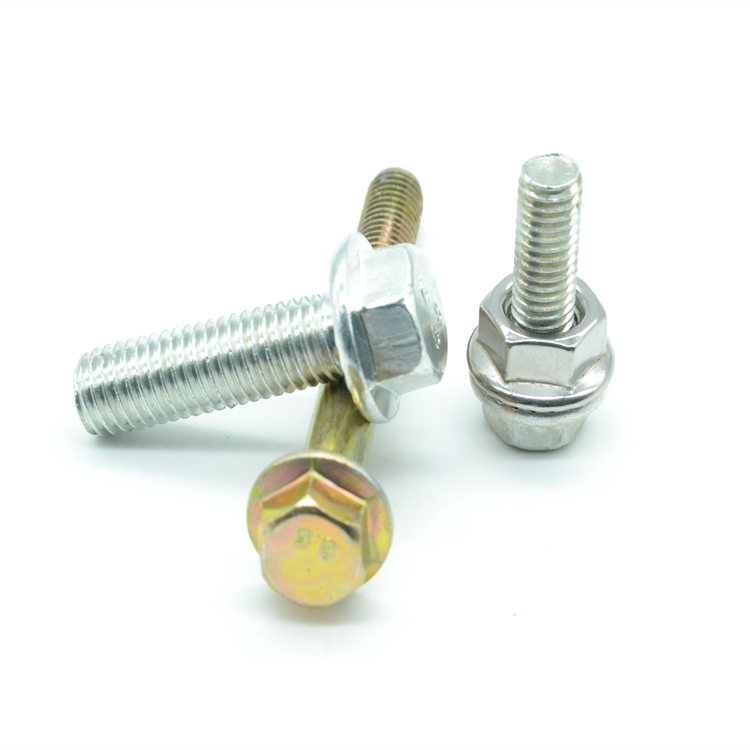sbc flywheel bolts factories
Dec . 01, 2024 12:00 Back to list
sbc flywheel bolts factories
The Role of SBC Flywheel Bolts in Automotive Performance An Overview of Manufacturing
In the ever-evolving automotive industry, the importance of each component can significantly affect the performance and reliability of vehicle engines. Among these essential components are flywheel bolts, particularly those designed for Small Block Chevy (SBC) engines. The manufacturing of SBC flywheel bolts not only showcases the intricate relationship between engineering precision and automotive performance but also highlights the innovations taking place within factories dedicated to producing these critical parts.
Understanding SBC Flywheel Bolts
Flywheel bolts are crucial for securing the flywheel to the engine's crankshaft. A reliable connection is vital, as the flywheel plays a pivotal role in power transmission, balancing, and overall engine performance. For SBC engines, which are popular in a variety of vehicles from classic cars to modern performance machines, flywheel bolts must be designed to withstand high levels of stress and torque. Consequently, the specifications for these bolts are tightly regulated, emphasizing strength, durability, and weight considerations.
Manufacturing Processes
The manufacturing of SBC flywheel bolts involves a combination of advanced technology, quality control, and skilled craftsmanship. Factories producing these bolts typically employ a range of processes, including forging, machining, and surface treatment, to ensure each bolt meets the required tolerances and standards.
1. Forging This initial stage shapes the bolts from high-strength steel through processes that may involve heating and applying pressure. Forged bolts tend to have superior strength and durability compared to those made from bar stock, as the forging process aligns the grain structure of the metal.
2. Machining After forging, bolts are machined to achieve precise dimensions. CNC (Computer Numerical Control) machines are often employed to ensure consistency and accuracy in the final product. These machines can handle complex designs and specifications, producing bolts that adhere to the high standards necessary for automotive applications.
3. Heat Treatment To enhance strength and fatigue resistance, many manufacturers subject the bolts to heat treatment. This process alters the microstructure of the steel, resulting in bolts that can withstand the harsh conditions inside an engine.
sbc flywheel bolts factories

4. Surface Finishing The final step often involves surface treatment, which may include processes like plating, coating, or polishing. These treatments not only improve the aesthetic qualities of the bolts but also provide resistance against corrosion and wear, further extending the lifespan of the component.
Quality Control and Testing
Quality control is an essential aspect of manufacturing SBC flywheel bolts. Factories implement rigorous testing protocols to ensure that each bolt meets the necessary mechanical and chemical properties. This can include tensile tests, torque tests, and fatigue tests. These evaluations help identify any defects in the manufacturing process and ensure that only the highest-quality products reach the market.
In addition, compliance with industry standards, such as those set by the Society of Automotive Engineers (SAE), is critical. Manufacturers often undergo third-party inspections and certifications to validate the quality and performance of their products, providing assurance to consumers and automotive professionals alike.
Innovation and the Future
The manufacturing of SBC flywheel bolts is also influenced by ongoing advancements in materials science and engineering technology. Innovations such as high-strength alloys and advanced coatings are being explored to push the limits of performance. Additionally, the rise of 3D printing technology could revolutionize how companies design and produce these components, allowing for greater customization and reduced waste.
As the automotive industry continues to progress towards sustainability, manufacturers may also seek eco-friendly practices in the production of flywheel bolts, from sourcing materials to minimizing energy consumption during manufacturing.
Conclusion
The role of SBC flywheel bolts in automotive engineering underscores the importance of precision manufacturing. The factories dedicated to producing these components showcase a blend of traditional craftsmanship and modern technological advancements. As demand for high-performance parts continues to grow, the focus on quality, innovation, and sustainability will pave the way for the future of automotive manufacturing. The evolution of these components will undoubtedly enhance the performance and reliability of SBC engines, ensuring they remain a favored choice for automotive enthusiasts around the world.
Latest news
-
High-Quality Panel Stud Bolt Reliable Panel Stud Bolt Factory & Suppliers
NewsJul.08,2025
-
High-Precision Fine Thread Locknuts Manufacturer & Supplier Custom Solutions
NewsJul.08,2025
-
PH Imperial Stud Bolt – High Strength Fasteners from Leading Supplier & Factory
NewsJul.07,2025
-
High-Quality Allen Wrench Bolts Leading Factory, Company & Suppliers
NewsJul.07,2025
-
Wholesale Ball Stud Bolt - High Quality Supplier & Factory Price Reliable Wholesale Ball Stud Bolt Company
NewsJul.06,2025
-
High-Strength Alloy Bolts Manufacturer & Supplier Quality Alloy Fasteners Factory
NewsJul.06,2025
